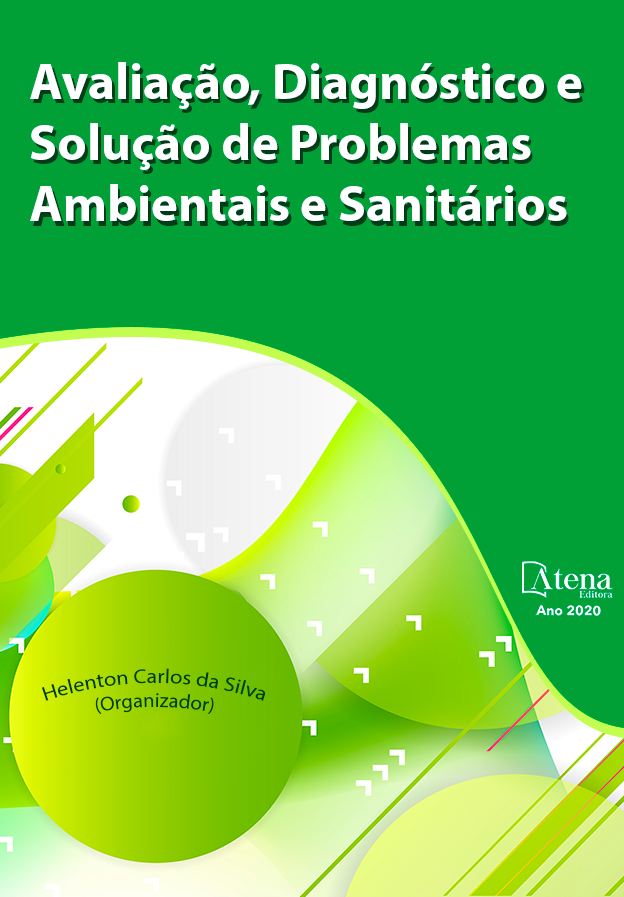
INFLUÊNCIA DE ILHAS DE CALOR NA FORMAÇÃO DE ARBOVIROSES - ESTUDO DE CASO NO BAIRRO DE BOA VIAGEM, RECIFE, PE
Atualmente, um dos maiores problemas sobre as áreas urbanas é a perturbação das características da atmosfera no meio urbano. Os principais motivos para essa ocorrência é a substituição de elementos naturais por elementos artificiais, como edificações e impermeabilização do solo. A troca natural de calor é impedida pelo meio artificial e as características do microclima da região passa a ser alterado. O fenômeno conhecido como Ilhas de Calor é caracterizado pelo aumento da temperatura do ar em áreas formadas por edifícios e baixa densidade arbórea. Este fenômeno é intensificado quando alinhado às altas taxas de emissões atmosféricas. Por sua vez, diversas doenças encontram meios favoráveis para disseminação em meio à desorganização das cidades. O mosquito Aedes aegypti, por exemplo, principal vetor das arboviroses (dengue, Zika e Chikungunya), adaptou-se facilmente ao ambiente urbano, devido ao maior número de habitantes aglomerados, temperatura elevada e uma maior quantidade de criadouros artificiais. Este trabalho teve como objetivo constatar a ocorrência do fenômeno de ilhas de calor, caracterizar sua intensidade, monitorar seu desenvolvimento e sugerir prováveis influências na geração de arboviroses, tendo como referência o bairro da Boa Viagem, Recife-PE. As medições de ilhas de calor foram realizadas utilizando sensores de temperatura e umidade em pontos distintos do bairro, tendo como referência uma área com significativa densidade de vegetação, e outros pontos com alto fluxo veicular e densidade populacional localizados no Bairro de Boa Viagem. Os dados dos casos de arboviroses pesquisados no trabalho foram fornecidos pelo Setor de Vigilância Epidemiológica da Secretaria de Saúde do Recife. Notou-se que a taxa de infecção é maior nessas regiões com concentração de ilhas de calor, que acabam tendo a temperatura mais elevada em relação a outras áreas. A ocorrência das arboviroses pode estar ligada a vários fatores, mas o impacto do clima nesse panorama vem ganhando atenção.
INFLUÊNCIA DE ILHAS DE CALOR NA FORMAÇÃO DE ARBOVIROSES - ESTUDO DE CASO NO BAIRRO DE BOA VIAGEM, RECIFE, PE
-
DOI: 10.22533/at.ed.29320250817
-
Palavras-chave: Temperatura, Umidade, Saúde, População, Recife.
-
Keywords: Temperature, Humidity, Health, Population, Recife
-
Abstract:
Currently, one of the biggest problems in urban areas is the disturbance of the characteristics of the atmosphere in the urban environment. The main reasons for this occurrence is the substitution of natural elements for artificial elements, such as buildings and soil waterproofing. The natural exchange of heat is prevented by the artificial medium and the characteristics of the region's microclimate are changed. The phenomenon known as Heat Islands is characterized by an increase in air temperature in areas formed by buildings and low tree density. This phenomenon is intensified when aligned with the high rates of atmospheric emissions. In turn, several diseases find favorable means for dissemination amid the disorganization of cities. The Aedes aegypti mosquito, for example, the main vector of arboviruses (dengue, Zika and Chikungunya), easily adapted to the urban environment, due to the greater number of crowded inhabitants, high temperature and a greater number of artificial breeding sites. This work aimed to verify the occurrence of the phenomenon of heat islands, characterize its intensity, monitor its development and suggest probable influences on the generation of arboviruses, having as reference the neighborhood of Boa Viagem, Recife-PE. The measurements of heat islands were performed using temperature and humidity sensors in different points of the neighborhood, having as reference an area with significant density of vegetation, and other points with high vehicular flow and population density located in the neighborhood of Boa Viagem. The data on the cases of arboviruses surveyed in the study were provided by the Epidemiological Surveillance Sector of the Recife Department of Health. It was noted that the infection rate is higher in these regions with a concentration of heat islands, which end up having the highest temperature in relation to other areas. The occurrence of arboviruses can be linked to several factors, but the impact of the climate in this panorama has been gaining attention.
-
Número de páginas: 14
- Josiclécia de Souza Ferreira
- Manuela Cristina Mota Lins
- Andréa Cristina Baltar Barros
- Cecília Maria Mota Silva Lins
- Ana Carolina Albuquerque Barbosa
- Adriana da Silva Baltar Maia Lins
- João Victor de Melo Silva
- Sérgio de Carvalho Paiva
- Giselle de Freitas Siqueira Terra
- Eduardo Antonio Maia Lins


